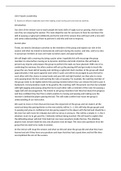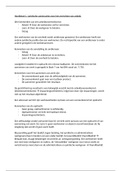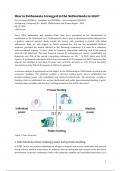Essay
Unit 4. Sport Leadership. (C)Merit. BTEC Level III Sport.
- Module
- Unit 4 - Sports Leadership
- Institution
- PEARSON (PEARSON)
Merit grade assignment for learning aim C. Explore an effective leadership style when leading a team during sport or exercise activities. Analyse the impact of own leadership. Analyse and review targets of the session. Transactional leadership, Laissez-faire, situational etc
[Show more]








